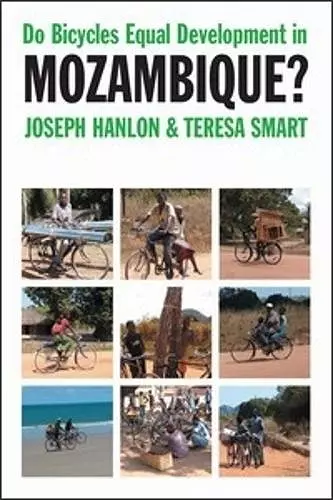Do Bicycles Equal Development in Mozambique?
Joseph Hanlon author Teresa Smart author
Format:Paperback
Publisher:James Currey
Published:18th Mar '10
Currently unavailable, and unfortunately no date known when it will be back

Challenges some key assumptions of both the donors and the government about how development can be achieved in Mozambique. Is Mozambique an African success story? It has 7 percent a year growth rate and substantial foreign investment. Fifteen years after the war of destabilisation, the peace has held. Mozambique is the donors' model pupil, carefully following their prescriptions and receiving more than a billion dollars a year in aid. The number of bicycles has doubled and this is often cited as the symbol of development. In this book the authors challenge some key assumptions of both the donors and the government and ask questions such as whether there has been too much stress on the Millennium Development Goals and too little support for economic development; if it makes sense to target thepoorest of the poor, or would it be better to target those who create the jobs which will employ the poor; whether there has been too much emphasis on foreign investment and too little on developing domestic capital; and if the private sector really will end poverty, or must there be a stronger role for the state in the economy? This book is about more than Mozambique. Mozambique is an apparent success story that is used to justify the present 'post-Washington consensus' development model. Here, the case of Mozambique is situated within the broader development debate. Joseph Hanlon is Senior Lecturer at the Open University and the author of Beggar Your Neighbours; Mozambique: Who Calls the Shots?; and Peace without Profit (all published by James Currey) which have all made influential interventions in the development debate; Teresa Smart is Director of the London Mathematics Centre, Institute of Education. Published in association with the Open University
This thoughtful book strongly but clearly puts forward its case for a different approach to economic development than is currently promoted by the Western establishment. It will be useful to those interested in economic development and Africa. Recommended. * CHOICE *
One of the book's greatest strengths is the integrated approach it takes in assessing Mozambique's current situation. It draws in and explores the country's political, war-ravaged history, the legacy of Frelimo rule, and Mozambique's current geo-political context. [...] Thus is the scene set in order to underline the primary purpose of the book: to advocate a complete overhaul of the way in which development is conceived and the way in which it is treated by the donor community. * PAMBAZUKA NEWS *
ISBN: 9781847013187
Dimensions: unknown
Weight: 380g
264 pages